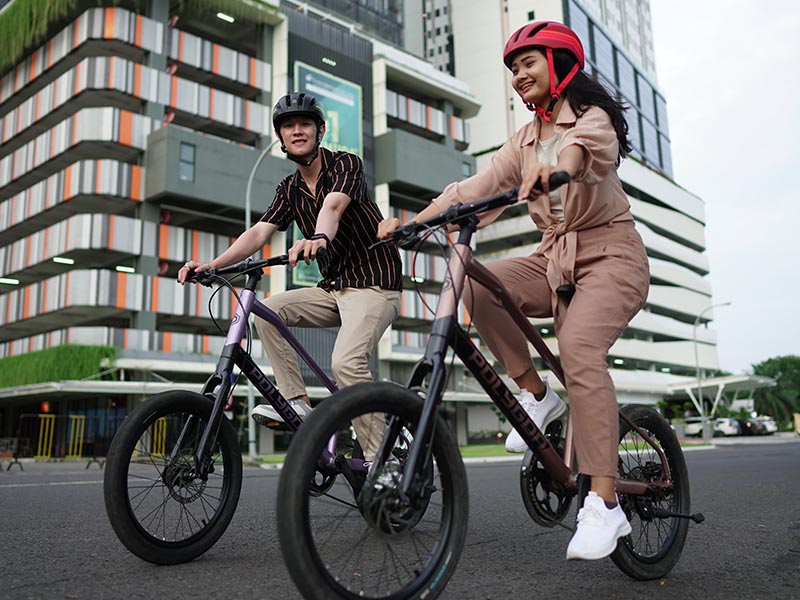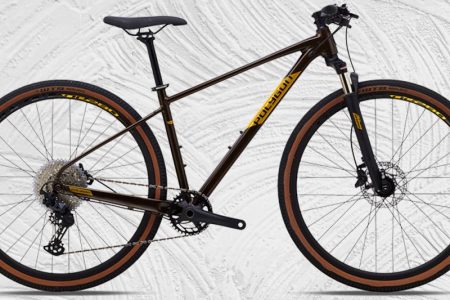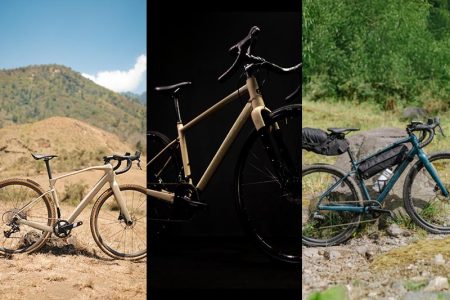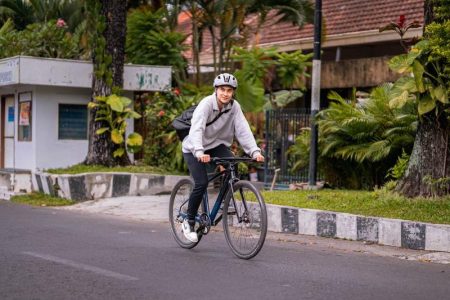As urban life becomes increasingly busy and the awareness of a healthy lifestyle grows, cycling as a mode of urban transportation continues to gain popularity. Not only is it eco-friendly, cycling also helps reduce traffic congestion and provides health benefits to its users. This trend has driven the demand for commuter bikes that are not only functional but also comfortable and suitable for the daily routine of city travel.
Before choosing a bike for urban commuter needs, there are several important questions you should answer to find the most suitable option:
- How far is your daily commute? The distance of your daily ride greatly affects the type of bike you need—whether you need a lightweight and fast option, or one that’s comfortable for longer rides.
- Do you need to carry or fold the bike? If you frequently take public transportation or have limited storage space, a folding bike might be the perfect choice.
- Do you ride in the rain or heat? Features like disc brakes and fenders are very useful for riding in all-weather conditions.
- Do you need to carry work gear or groceries? Look for bikes with racks or baskets to carry your items easily.
Answering these questions will help you determine the right features and type of commuter bike, making your city rides more comfortable and efficient. Next, we’ll discuss the key features to consider when choosing a commuter bike that suits your daily needs.
Key Features to Consider in a Commuter Bike
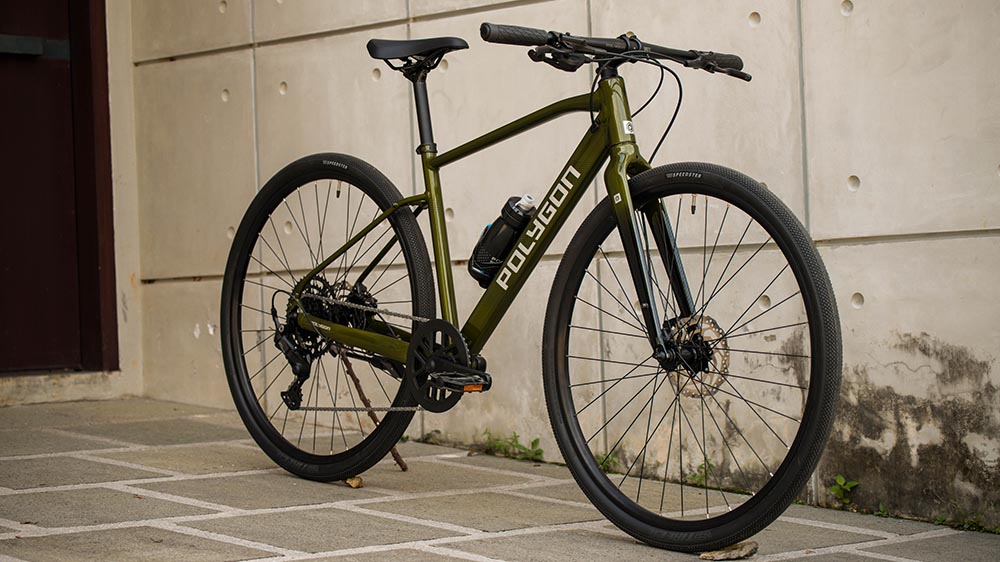
Choosing the right commuter bike means looking into key features that will support your comfort and functionality during daily travel.
- Frame Material – Aluminum vs Steel
Frame material plays a big role in the bike’s weight, strength, and comfort. Aluminum is lighter and rust-resistant, making it ideal for city use. Steel, on the other hand, is stronger and more durable, with better vibration damping, making it comfortable for longer or rougher rides. However, steel is usually heavier and requires extra maintenance to prevent rust. - Gearing – Single Speed vs Geared Bikes
If your commute is mostly flat, a simple, low-maintenance single-speed bike may work well. However, if your route includes hills or uneven terrain, a geared bike will help keep pedaling light and efficient. - Tire Type and Width – Puncture-Resistant and Wide for Comfort
Wider, puncture-resistant tires offer more comfort when riding. They absorb road vibrations better and reduce the risk of flats caused by sharp debris. Wider tires also improve stability and bike control. - Brakes – Disc Brakes for All Weather
Disc brakes are becoming increasingly popular on commuter bikes because of their superior performance in all weather conditions, especially rain. They provide stronger and more responsive braking compared to traditional V-brakes, helping you ride more safely and confidently. - Riding Position and Comfort – Upright Handlebars for Visibility
A comfortable, upright riding position helps you see the road better and reduces strain on your back and neck. Urban bikes are typically designed with upright handlebars to keep the rider relaxed and in a healthier posture. - Mounts for Racks, Fenders, and Baskets – Essential for Carrying Items
If you frequently carry items like work bags, groceries, or other essentials, ensure the bike has mounts for racks, fenders, and baskets. These features let you carry loads without compromising comfort.
Understanding these features will help you choose a bike for urban commuter lifestyles and city riding habits.
Popular Types of Bikes for Urban Commuting
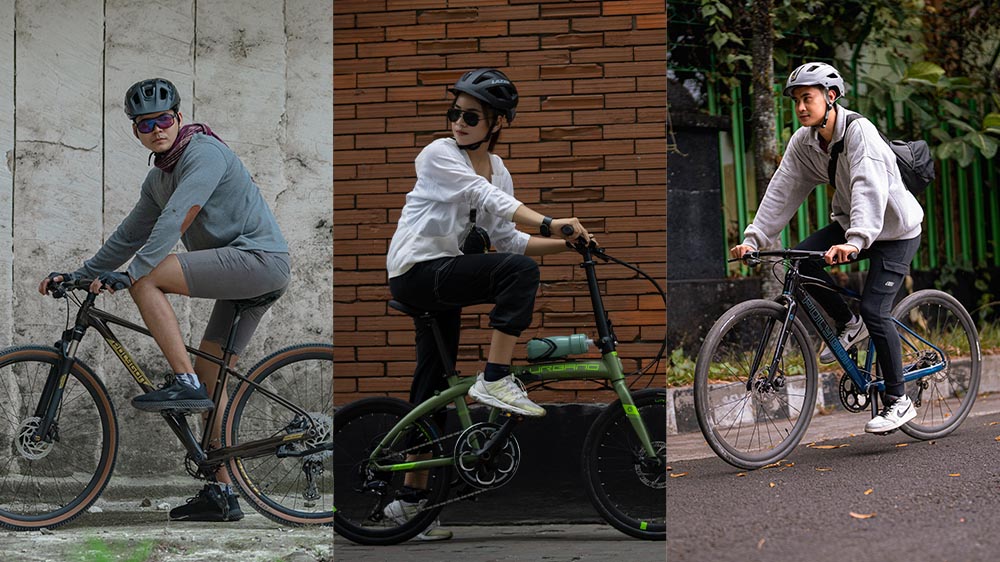
Choosing the right bike type for commuting is crucial for a smooth and efficient daily journey. Here are some popular bikes for city commuting and why they’re a great fit:
- Hybrid Bikes: A hybrid bike combines features from mountain and road bikes. With wider tires than road bikes and a more upright riding position, it offers comfort and stability on various surfaces—from smooth asphalt to uneven sidewalks. Hybrid bikes are great for riders seeking versatility, good handling, and easy maintenance.
- Folding Bikes: Folding bikes are ideal if you combine cycling with public transport or have limited storage at home or work. Their main advantage is their portability—they’re easy to fold and carry without sacrificing ride comfort for short to medium distances. Modern models are also lighter and more durable.
- Urban Bikes: An urban bike is purpose-built for city commuting with a focus on convenience and practicality. These bikes often come with built-in racks, fenders, and upright riding positions. They prioritize stability and safety, making them ideal for navigating busy city traffic.
- Electric Bikes (E-Bikes): Electric bikes are growing in popularity as an effortless commuting solution, especially for longer distances or hilly routes. With electric motor assistance, you can reduce the effort required to pedal, making rides faster and less tiring. E-bikes are also a great option for those who want to ride without excessive sweating or physical strain.
By understanding the features and benefits of each type, you’ll be better equipped to choose the best bike for urban commuter needs.
Tips Before Buying a Commuter Bike
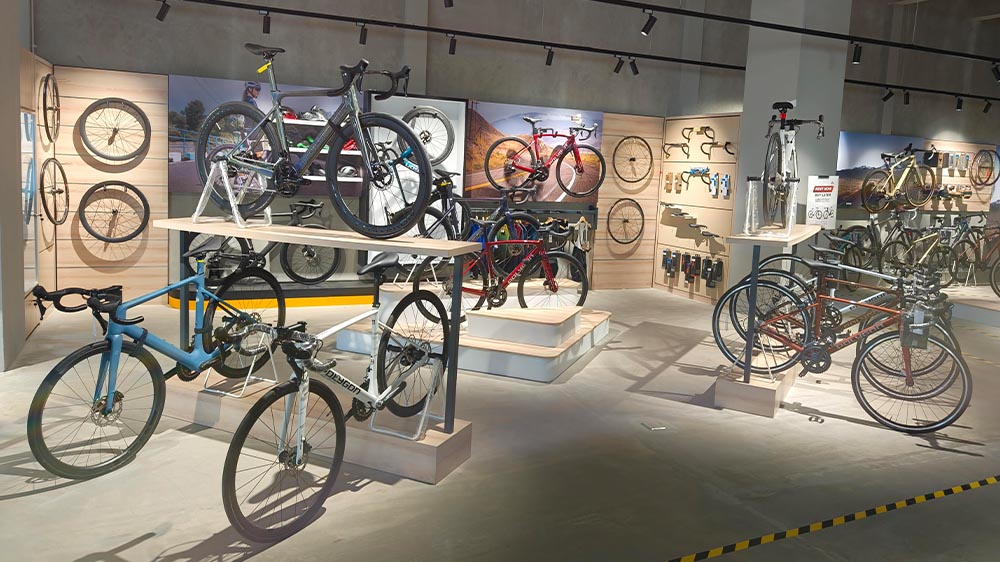
Choosing the right commuter bike isn’t just about features or types—it’s also about your overall buying experience. Here are some useful tips before making your purchase:
- Take a Test Ride if Possible: Whenever you can, try the bike before buying. A test ride helps you gauge riding comfort, responsiveness, and frame fit. This is a crucial step to ensure the bike fits your style and needs.
- Visit a Trusted Bike Store: Buy from a trusted bike shop. Here, you’ll get expert advice from professional staff and access to a wide range of quality bikes, including Polygon, known for innovation and reliability. Official stores also offer warranties and after-sales services.
- Don’t Sacrifice Comfort for Price: Buying a bike isn’t just about getting the cheapest deal. Make sure the bike fits you well and is comfortable for long-term use. A comfortable ride keeps you motivated and reduces the risk of injury.
- Look for Good After-Sales Service: A responsive after-sales service—such as regular maintenance, spare parts, and warranties—is key to maintaining your bike’s performance. Make sure the store offers solid after-sales support.
- Consider Long-Term Needs: Think about how your commuting habits might change. Will your commute get longer? Will weather or road conditions change? Choosing a durable, flexible bike will save you time and money in the long run.
By keeping these tips in mind, you can make a smarter and more satisfying bike for urban commuter purchase.
Read also:
Conclusion
Choosing the right commuter bike is an investment in your daily urban comfort and efficiency. By considering your commute distance, folding needs, weather conditions, and cargo requirements—along with key features like frame material, gearing system, and brakes—you can find a bike that fits and feels right. Pick a type that suits your lifestyle, whether it’s a hybrid bike, folding bike, urban bike, or electric bike. Don’t forget to do a test ride to be sure of your choice.
Find your ideal Polygon commuter bike today and enjoy a more practical, comfortable city ride!










